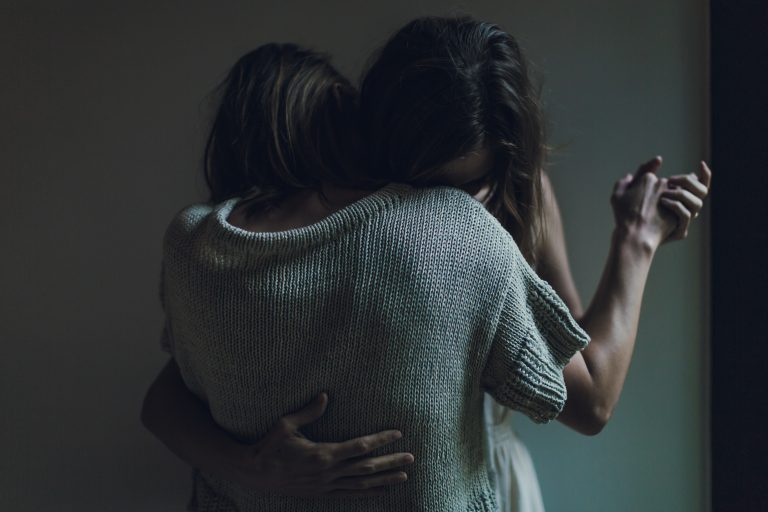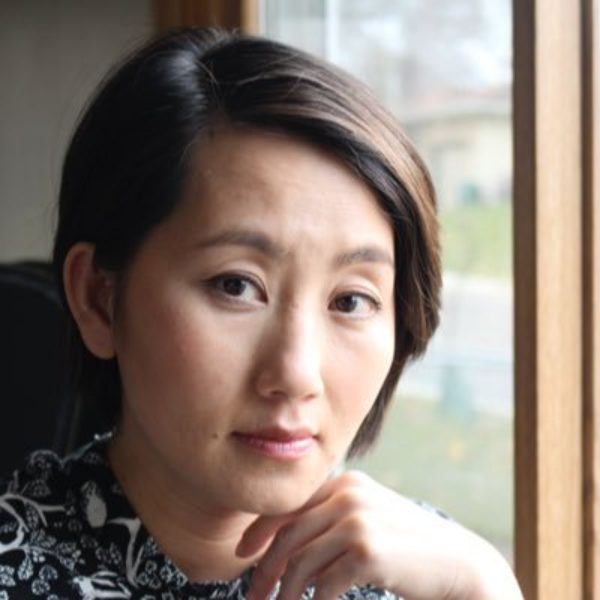
Image by Matthew Henry, Public Domain Dedication (CC0).
Suffering Is Both a Barrier and a Bridge
One day my brother said his face felt heavy. His left eye started to water. He wiped away the liquid. He massaged his face. He went fishing with our cousins.
When he got home, it was late. The sky was dark. The house was dark. He was quiet coming into the house. He didn’t turn on lights until he got to the bathroom.
In the light of the bathroom, he could see that one side of his face looked strange. It appeared to be drooping. He tried to push it up: his eye lids, his cheek, his mouth, but to no avail. Nothing was working on the left side of his face.
Instead of waking up our parents or making a scene, he used his hand to help his mouth open, and he brushed his teeth and washed his face, and he went to bed.
In the morning, when he got up, my mother saw him in the hallway, and she cried for my father, and together they hovered over him, half of his face concerned and confused, the other dropping low.
When he talked, one side of his mouth moved. His left was beyond his country. It would not close no matter how hard he tried to squint it, no matter how much force he applied with his hands.
We had all seen Two-Face, the villain from Batman. Here was our living version, not a villain, just a young man trying to get by. But there was something new and scary about his face now, his right side as it had always been, full of softness and warmth, and then the other side of his face, his left, looking stiff and hard and falling down. It was hard to look at one side or the other, and impossible to focus at once on the full contrast of his face.
The doctor diagnosed him with Bell’s palsy, a phenomenon where one side of a face will experience temporary weakness of the facial muscles. Its cause was unknown, and its recovery can take up to six months. Some people experience a complete recovery. A limited number experience Bell’s palsy symptoms for life.
It was a dreadful thing to have happened. When people saw him, they stopped and stared. The people who loved him asked what was wrong and acknowledged his condition with sympathy and care. The people who didn’t know him thought that his face was the way it had always been, so they did not ask, and they simply stared or avoided staring. He grew shy before the gaze of others. He grew to dislike parts of his face.
Slowly, we got used to his new face, and slowly it began to improve, until we met somewhere in a new place: where the face that was before us was certainly our brother’s, not entirely as it had been, but so much better than it was.
Several years later, I’m sitting opposite my baby sister, a young, confident woman. We are having a late lunch, a favorite meal of ours: soft fermented rice noodles in a curry sauce. She’s fresh from the shower so her hair is wet. She’d gone out the night before. She looked tired before me, young with her face free of make-up. Her left eye is a little watery. I assume that it is because she drank.
She says, “My face feels weird.”
I say, “What does it feel like?”
She says, “Heavy?”
I say, “Hmm. Are you having a hangover?”
She says, “I had two drinks. I don’t know.”
We eat. I talk about how the curry sauce was my best to date. I’m feeling proud. I’m feeling good. It’s springtime. The tulips are blooming out my dining room window. The birds are chattering at the bird feeder, a little unpainted wooden house with glass sides, seeds spilling forth, a hanger on top.
She’s blinking. Only her right eye is blinking. Her left is barely fluttering.
I tell her, “Your left isn’t blinking.”
She says, “I can’t control it.
I tell her, “Close your eyes.”
Her right closes obediently. Her left looks at me.
I say, “You can’t close your eyes.”
Her right eye rolls.
She says, “My tongue is getting thick, and I’m losing feeling in my left face.”
I get up to find my phone. I start looking for something I’d seen in passing on Facebook, a fast stroke test. I find it. I tell her to smile. Her smile is crooked. I tell her to raise both arms on top of her head. She does this. I ask her to repeat a sentence. “I am happy.” Too short — she says it easily. I make the sentence longer. “I want to go home in a great hurry and get some rest.” She follows the words, there’s slight slur.
I ask, “Are you having speech difficulties?”
She says, “No. I can’t control one side of my mouth so the words aren’t coming right.”
I put my phone down. I’m beginning to think I have to eat in a hurry.
I tell her, “Eat your lunch. We’ll figure out what to do after we eat.”
We eat quietly for three minutes. I’m thinking: “Is she having a stroke? This isn’t Bell’s palsy, is it? What to do?” I call our parents. Our father is telling me to take her to the nearest emergency room. He and Mom are on their way.
My sister chokes on the soft rice noodles. She can no longer chew.
I tell her to go and get dressed.
My little sister, just returned from her first year of graduate school, just having completed and submitted her last final the day before, was diagnosed with Bell’s palsy. The symptoms get worse throughout the next week. She, who is confident and healthy and positive, accepts the diagnosis with grace. Her summer plans are not going to work out as she’d planned. Her doctor thinks it could be stress-related. She has to lay low and heal.
My parents take her to my cousin, who also had Bell’s palsy a few years ago. During her bout, she’d learn a special facial massage from an elder. My cousin administers the massage. She is strong. The right side of my sister’s face winces in pain as the left receives the massage.
My parents have her schedule appointments with two acupuncturists. One uses needles. The other wants a more aggressive treatment. He uses needles that are connected to an electric source. Her left side dances while her right side winces.
She can’t sleep on her left side. It is incredibly painful. My little boy swings his head into her face to give her a kiss. Her right eye wells up with tears, and they fall even as the right side of her mouth forms a kiss for him in return. She can’t even put a hand to her left side.
She tells me one day, “I hate my face.”
I tell myself that I would too if I were her. I tell myself she needs to express herself. I know she’s responded with so much grace, no self-pity whatsoever, to this condition. I struggle to look her in the eyes.
I say, “I love you.”
And I do. I love her so much. But I don’t know how to help her.
My brother does. He tells her to tape her left eye shut when she goes to sleep or it will dry out. He tells her that the massages didn’t do anything for him so maybe she can lay off them and just let her face rest for a while. He tells her that he’s about 95 percent recovered now, after three years. There’s a small corner of his mouth that isn’t fully recovered yet. He warns her to be careful because she’ll bite the side of her mouth a lot if she isn’t. He offers to go to one of the acupuncturists with her to get treatment too, for the 5 percent in his face.
They are together in this space where I’ve never been and don’t want to be. When my brother got Bell’s palsy, I thought about how horrible it was, and it is, but among life’s travesties and tragedies, it isn’t the worst.
I am learning now about what the things we go through, we survive, do to us and our relationships with others, how they shape and change who we are and how we can be — give us specialized knowledge, insights, experiences that we can share when the loneliness of a personal experience is too much to bear.
Going through hardships gives us strength in the places we’d never thought to develop, spaces we didn’t know we’d occupy, room to reach beyond ourselves, toward others who are where we had been. My brother and my sister have each other. They have both looked upon the sides of their faces and have discovered in themselves, the face that doesn’t change with time or circumstance, the hard-earned beauty that one must see in oneself.
